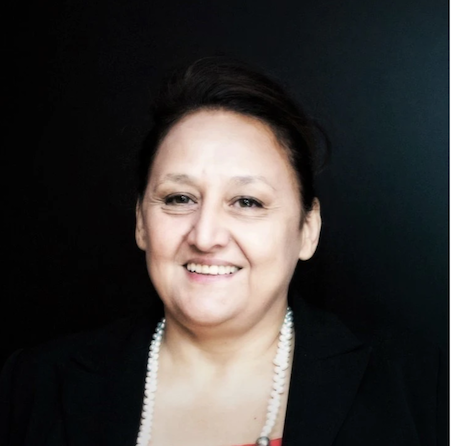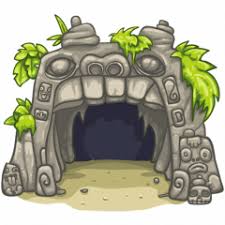Tell us about your background and what got you interested in an online community culture?
My background includes 20 years as an international C-level executive and entrepreneur and 10 years as a Certified Management Consultant, Executive and Systemic Life Coach. I got also trained as a Facilitator of Systemic Constellations. During that time, I realized that when it comes to our emotional, spiritual, systems, cultural, collaborative, and collective intelligence, we are on a life-long journey and very few things can be learnt by ourselves, by reading about them or during isolated workshops, as well as within our usual social circles or working environment. We need space where we feel safe and supported, while also challenged and exposed to different kinds of otherness. To add to that, we live in a world which is vastly different from the world of our grandparents and our parents. It is a world of multi-cultural and gender diversity, a world of immense complexity and constant changes, as well as wicked challenges the solutions of which cannot be found by any one single person.
Our grandparents and our parents lived in a world where local communities were at the core of society, the place where we would feel safe to deal with personal challenges, learn from the wisdom of elders, be loved and feel supported to grow and develop. Today, these circles are still very important for us and in general being connected to our roots is more important than ever. However, they are also not enough because they often cannot help us with the constant change, complexity and diversity of the world we live in. We need them more than ever, but we need something more to fully develop our emotional, spiritual, systems, cultural and collective intelligence as required so that we thrive in today’s world.
Tell us about your day and what it's like to build community across so many locations and cultures?
Most of my days, I wake up with a huge enthusiasm for what I need to do, and I pack my schedule with many activities. I have to work with a lot of people from around the world which means I often have meetings at the start of the day and well in the evening. When I come to the end of the day, I often feel that I hardly want to wait for the next day to continue. That is how many purpose-driven founders and changemakers feel as they share similar passion for their work. Hence, we share similar challenges.
As founders and changemakers, we are so driven by our desire to fulfill our purpose, make a difference and contribute that we forget to take care of ourselves. Therefore, I often must remind myself of what mothers are told on an airplane. In case of a problem with oxygen, they need to put first their mask and then the mask on their baby. Similarly, unless we take care of our own health and wellbeing, we will not be able to do what we are here to do. Also, as I often say, we cannot be both busy and wise. Making wise choices requires having space, having moments of doing nothing or as I call it “sleeping on it” or “walking it”. When we move from one thing to another in a fast fashion, we become slaves of our minds and we lose contact with our souls.
In what ways have you and the WomenH2H community transformed since the pandemic?
I opened the community a few months before the start of the pandemic completely not related to it. I was driven by the reasons I described before and the pandemic was a pure coincidence. Some people thought that this is helping us as more people were at home and interested to reach out and connect. In my case, I consider the pandemic a destruction and delayer in the sense that some people joined during lockdown as opposed to being connected to our actual purpose. The only positive impact from the pandemic is that people saw the power of online connections and much of the conservatism related to meetings and learnings online is gone.
How does trust factor into your daily routine with WomenH2H, especially in the current COVID atmosphere?
We often refer to WomenH2H as a living system, an ecosystem that is self-building itself from within. Any living system, life in general, is intrinsically connected to trust. When there is no trust, we do not act, we do not engage, we do not share authentically. There is no life. Also, when there is no trust we cannot learn and develop, we cannot collaborate and tap into our collective intelligence, we cannot co-create. As far as the current Covid atmosphere, trust is essential because we are asked to make decisions that impact our own health but also the health of our closed ones and the world economy. Our usual ways of thinking in the past have been focused on finding the one right decision using as sources of information government institutions and media. Some of us continue to rely on them, many of us however lost our trust in institutions and media. Social Media only made things worse, and we found ourselves living in a world in which we do not trust anyone.
What we need now is to move away from our mentality that there is one right answer to any question, and that leaders are capable of taking the best decisions for us. We need to embrace instead that the world is far too more complex for any single person or government to comprehend. It is also multi-colored as opposed to black and white, and constantly changing. And here we go back to online communities such as WomenH2H and kinnected.org. They help us to deepen our understanding of our reality and tap into collective wisdom and that is not a one-time deal; it is a life-long journey.
What do you wish the public knew about what you experience, as someone who is working to innovate a humane centered, community based on developing collaboration, using the technology available to you?
I would start with the latter part of the question, technology. A lot of people argue whether technology is good for the future of humanity or bad. In my opinion, it is both - just as an herb could be a poison or a medicine. I personally believe that technology can augment our human capacities and help us solve our biggest challenges. For that to happen, we need to move from the duality of the question whether it is good or bad and focus instead our attention from what we are trying to avoid to what we want to bring into reality.
Going back to our humane and heart-centered communities, technology can do for us things that have not been possible in the future. Every week, I find myself speaking with people spread on all continents and that opens unprecedented opportunities to tap deeper into our collective wisdom. And here is the catch. To really do that, we need patience and longer commitment. We cannot go there, spend a couple of minutes and then move to the next thing. We need to move away from our habits of jumping from one social media to another, filling our senses with unnecessary, as well as fake, information and getting subjected to the intricate ways in which advertisers use the latest science and technology to influence us. We need to instead focus on a few communities that touch our hearts, relate to the causes we care about and offer the opportunity for deeper connections with diverse people who share our dreams on themes that matter to us. None of that is possible on Social media. No matter how mindfully we consume it and how much we avoid the nonsense and promotion, we get subconsciously impacted by the ever improving and very skillful algorithms. And as long as SM is offered to us for free, we remain the product that keeps being sold over and over again.
What is the best part of your day? The hardest?
The best part of my day is when I work on something that I love, or I am passionate about. Time just flies away. I also love it when I manage to move forward on something that has been keeping me stuck, something that triggers automatic responses in me or in some other way hinders my journey. The list continues, but in general, I define the good moments as: Wow! Moments (when something magic happens, or surprises me), Aha! Moments (when I realize, learn something important), Yeah! moments (when I achieve something) as well as any moment when I feel fully alive. That is why I have proposed these four to be our indicators of success in WomenH2H as well.
The hardest moments are when I am stuck on challenges that have been with me for very long time. In these moments, I realize that something keeps me stuck, something is yet to be healed so that I move away from my old habits forward to something that I know is better for me. I have realized though that no matter how it feels, we are never back to the initial place. We are moving forward on a spiral and we have moved forward even when we feel as if we are still stuck on the same place.
Has Covid-19 changed your approach to your work going forward?
My reality has not been changed at all due to Covid-19. As a matter of fact, the nature of my work was such that I was working more virtually the year before Covid-19 hit than during it. I personally believed in the advantages of working online for a long time and I was a regular user of Skype and Zoom way before the pandemic. I learnt though then that when working virtually we need to organize our day completely different. I did not know that then and I found myself in the middle of a burnout. During the lockdown many of us experienced that. Therefore, we need to learn to design our day in a completely different way. When we work offline in an office, it takes us time to reach from one desk to another for a conversation. We commute for meetings. We talk with people around the water-cooler and the coffee machine. The restrooms are further away from our desks than at home. There was space between work duties and home duties and in general in between activities and meetings. We need to now consciously create that space and that is critical for our health and wellbeing.
What is the best life/career advice anyone has ever given you?
I got many great advices from teachers and mentors in my life, but the three best ones came from a book I bought in a supermarket of all places. It found me in a very crucial moment of my life when I was going through a terminal illness. The first one was realizing that what irritates us in others is a signal for something we need to change in ourselves. I find this to be very transformational as it helps with our blind spots and our black-and-white thinking. The second one relates to the power of forgiveness. I did some meditations focused on forgiveness and I would never forget the pure happiness and a sense of wellbeing that came in that moment. And the third one was on the role of idealizations. Today, I often call myself a recovering idealist. For changemakers and entrepreneurs, idealizations of something in the future is what drives us, it is at the core of our passion. Yet, such idealizations could also lock our midset and prevent us from seeing the complexity of the full picture. Actually, these three advices can be merged into one single one, but I will leave that to you ;)
Can you recommend one easy, daily self-health practice that can help people get through the day?
One thing I always recommend is “sleeping on” or “walking on” important decisions. Something else that really works for me is moving away for a bit from whatever is keeping me occupied or worried, putting my eyes on something beautiful and taking a few deep breaths. For me something green or water in nature, as well as some art, can do miracles but anything else that silences the mind so that we connect to our soul can do as well. The other thing that works for me (when I do it consciously) is to monitor what activities and food give me energy and what activities and food deplete my energy. And I do not mean the kind of energy that comes from energy drinks and coffee and the sense of depletion which comes before we take our next dose. There is no better health recipe than learning to listen to our body and our soul.
Is there anything else you’d like the public to know about how it feels to be a leader and steward of a cross-cultural intergenerational social platform at this point in our global pandemic?
First, I refuse to define my /our life as before and after the pandemic. My experience with such transnational transformational events is that we get focused on a piece of the picture and we miss to see the bigger picture. And the bigger picture is always in events that have started way before the one which is in our focus and with consequences way forward in the future.
My own answer of this question is in what I consider my purpose today. I am focused on creating opportunities for us to deepen our understanding of our reality, tap into our innate wisdom and collective intelligence, and consciously participate in shaping our own future. To do that, we need to shift our attention from what we try to avoid to what we want to co-create. So, the question is always one. What kind of world do I want to live in when it comes to… and how does that impact my decisions and actions today.
More Stories from Kinnected
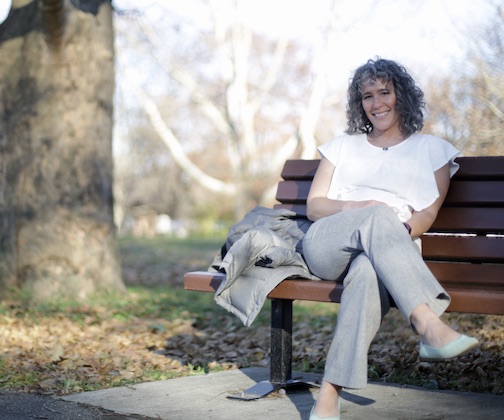
At times, it has been really frustrating to be a strategist and health communication professional and witness the lack of strategic planning and messaging that we have over the last two years.
-
4 years ago
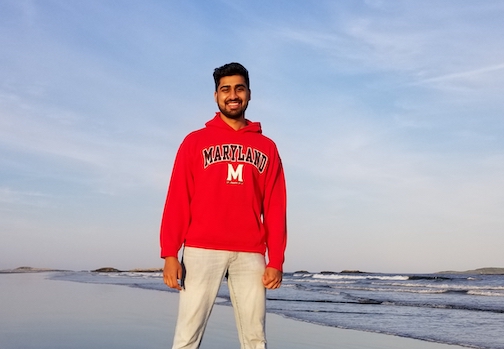
"What many people miss is that emotional exhaustion among clinicians existed long before the pandemic."
-
4 years ago
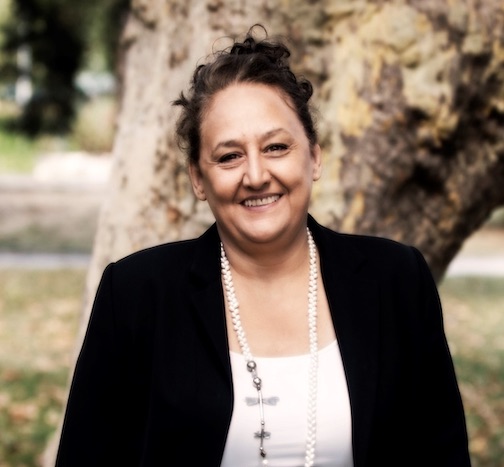
"A lot of people argue whether technology is good for the future of humanity or bad. In my opinion, it is both - just as an herb could be a poison or a medicine."
-
4 years ago
